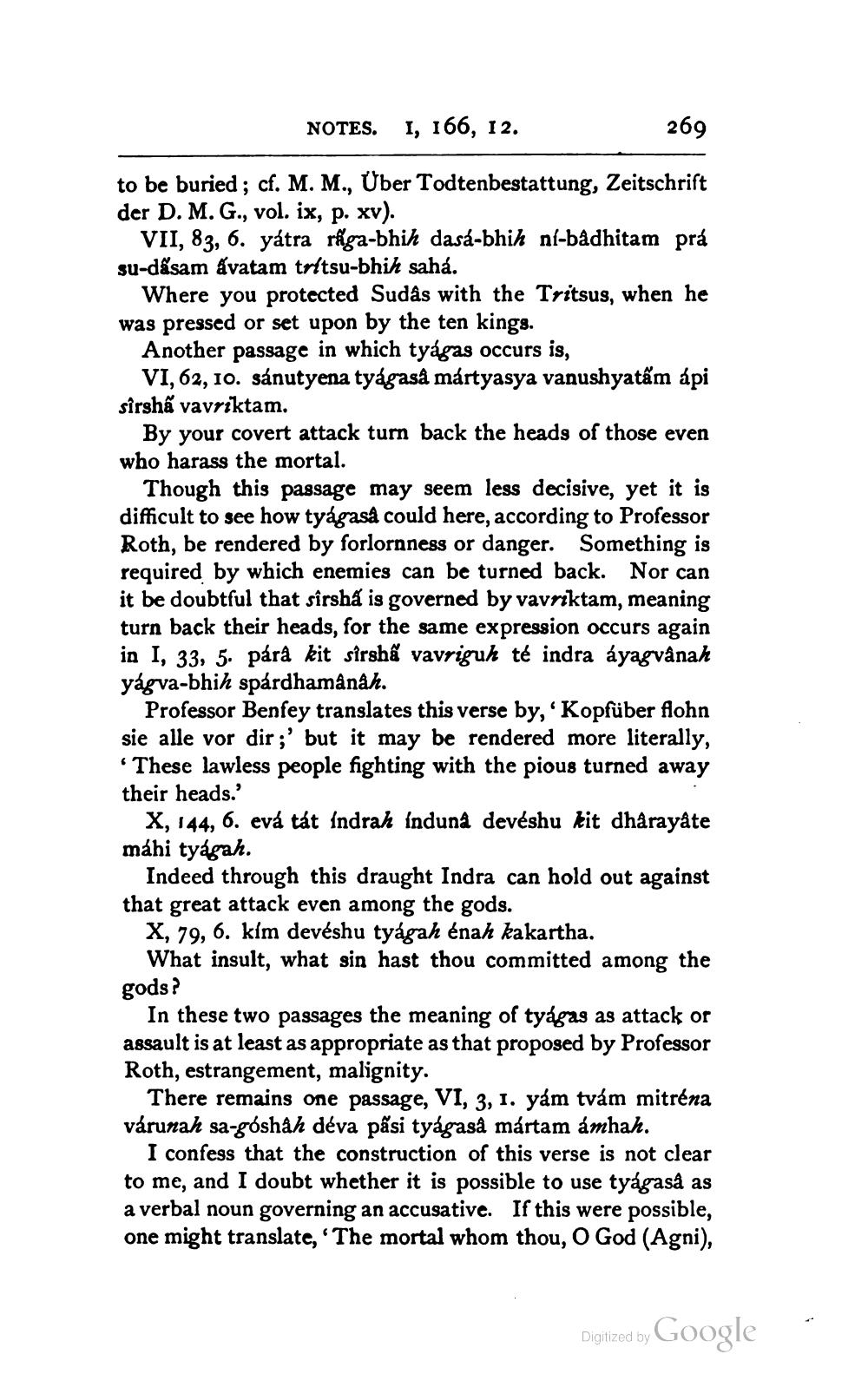________________
NOTES. I, 166, 12.
269
to be buried; cf. M. M., Über Todtenbestattung, Zeitschrift der D. M.G., vol. ix, p. xv).
VII, 83, 6. yátra råga-bhih dasá-bhih ni-badhitam prá su-dåsam ávatam trltsu-bhih sahá.
Where you protected Sudås with the Tritsus, when he was pressed or set upon by the ten kings.
Another passage in which tyágas occurs is,
VI, 62, 10. sánutyena tyágaså mártyasya vanushyatấm ápi sirshã vavriktam.
By your covert attack turn back the heads of those even who harass the mortal.
Though this passage may seem less decisive, yet it is difficult to see how tyágasa could here, according to Professor Roth, be rendered by forlornness or danger. Something is required by which enemies can be turned back. Nor can it be doubtful that sîrsha is governed by vavriktam, meaning turn back their heads, for the same expression occurs again in I, 33, 5. pára kit sirshã vavriguh té indra áyagvânah yágva-bhih spárdhamanah.
Professor Benfey translates this verse by, Kopfüber flohn sie alle vor dir;' but it may be rendered more literally, 'These lawless people fighting with the pious turned away their heads.'
X, 144, 6. evá tát indrah induna devéshu kit dhårayâte máhi tyágah.
Indeed through this draught Indra can hold out against that great attack even among the gods.
X, 79, 6. kim devéshu tyágah énah kakartha. What insult, what sin hast thou committed among the gods?
In these two passages the meaning of tyágas as attack or assault is at least as appropriate as that proposed by Professor Roth, estrangement, malignity.
There remains one passage, VI, 3, 1. yám tvám mitréna várunah sa-góshåh déva păsi tyágaså mártam ámhah.
I confess that the construction of this verse is not clear to me, and I doubt whether it is possible to use tyágaså as a verbal noun governing an accusative. If this were possible, one might translate, 'The mortal whom thou, O God (Agni),
Digitized by
Digitized by Google
.




